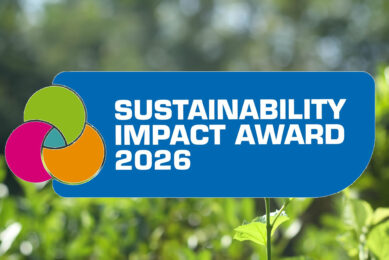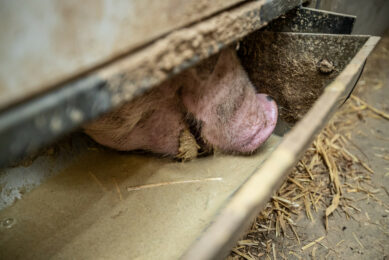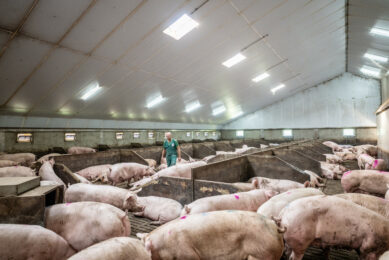Netherlands: Feed chain to contribute to climate improvement
The Dutch feed chain wants to obtain a degree of insight into the effects which the production and the use of animal feed have on the climate in order to reduce these effects.
To this end the agricultural sectors involved have started a project the realization of which has been entrusted to Wageningen University and Research Centre (WUR) and to Blonk Milieu Advies (BMA).
Calculation tool
The knowledge and data generated in this project will be bundled into an easy to use calculation tool with which the Carbon Footprint Animal Nutrition can be calculated.
The knowledge and data generated in this project will be bundled into an easy to use calculation tool with which the Carbon Footprint Animal Nutrition can be calculated.
This project will be supported financially by six product boards in the Netherlands. The Ministry of Economic Affairs, Agriculture and Innovation (EL&I) supports initiatives that result in sustainable animal husbandry and has therefore financed half this project.
Commissioned by the Product Board Animal Feed (PDV) and the Ministry of EL&I, WUR and BMA recently launched a project with the purpose of obtaining an understanding of the greenhouse gas emissions resulting from the production of feed and its use in animal husbandry.
The know-how and the data which the project will yield will then be used by the sectors involved to explore improvement options.
Reduce carbon footprint
The Agricultural and Horticultural Organisation (LTO) and the Dutch feed industry (Nevedi) have also signed a letter of intent to make tangible efforts to reduce the climate footprint of animal nutrition and animal production.
The Agricultural and Horticultural Organisation (LTO) and the Dutch feed industry (Nevedi) have also signed a letter of intent to make tangible efforts to reduce the climate footprint of animal nutrition and animal production.
This vast study will be supervised and steered on behalf of the financiers by a broad steering group in which the financiers, the principal branch organisations and a social organisation are represented.
For the technical reconciliation a number of working groups will be created with technical experts from all agricultural sectors.
The objective of the project is to obtain an insight into and to raise awareness of greenhouse gas emissions by the feed chain and to offer possibilities to explore improvement options. Complete transparency is a requirement in all phases of the study.
Carbon food print animal nutrition
The Carbon Footprint Animal Nutrition (CFAN)comprises the trajectory from the cultivation of vegetable products (grains and seeds but also roughages) up to and including the conversion of feed into animal product.
The Carbon Footprint Animal Nutrition (CFAN)comprises the trajectory from the cultivation of vegetable products (grains and seeds but also roughages) up to and including the conversion of feed into animal product.
This means that CFAN comprises the following links: crop and roughage cultivation, primary processors of these products, production of compound feeds and the animal husbandry.
Uniform protocols for methods are prepared for each of these links, which protocols also serve as a basis for the gathering of data.
On the basis of this system delimitation the compound feed industry can calculate the carbon footprint of the compound feed supplied (in CO2 equivalents per kg of compound feed) and can also make a prognosis for Carbon Footprint for the animal product produced.
In order to make the knowledge acquired useful in practice as well, a calculation model will be developed which interested parties can use to calculate the Carbon Footprint of the feed chain or of their link.
International dimension
It is an explicit further goal to give the project an international dimension. The greater part of the Dutch branch organisations that participate in the project are affiliated through their European organisations with the Sustainable Consumption and Production Round Table.
It is an explicit further goal to give the project an international dimension. The greater part of the Dutch branch organisations that participate in the project are affiliated through their European organisations with the Sustainable Consumption and Production Round Table.
In that sense they share the aspiration of this ‘round table’ for the European harmonisation of methods to calculate the impact on the environment including the one by greenhouse gases, caused by the food and feed chains.
The Dutch (branch) organisations will inform the European organisations and take care of co-ordination.
Feed database
The intention of this international co-ordination is that the project result, which consists of an unambiguous method per link in the feed chain, will yield a database with data about a large number of feed materials and a calculation model, will have an international platform of support and that it will be used on a wide basis.
The intention of this international co-ordination is that the project result, which consists of an unambiguous method per link in the feed chain, will yield a database with data about a large number of feed materials and a calculation model, will have an international platform of support and that it will be used on a wide basis.
A separate and directly accessible page has been created for this project on the website of the Product Board Animal Feed.











